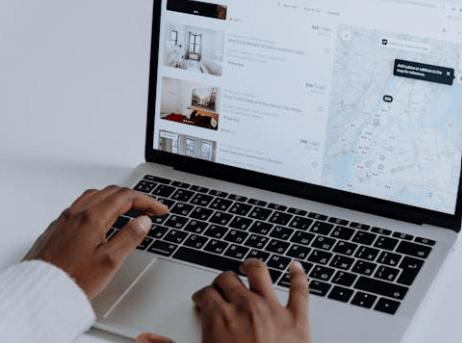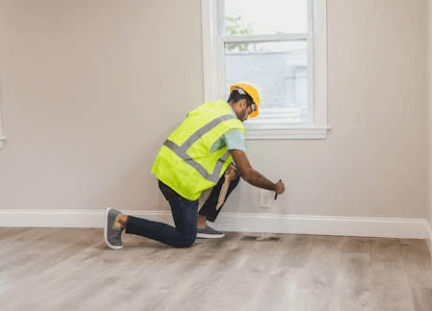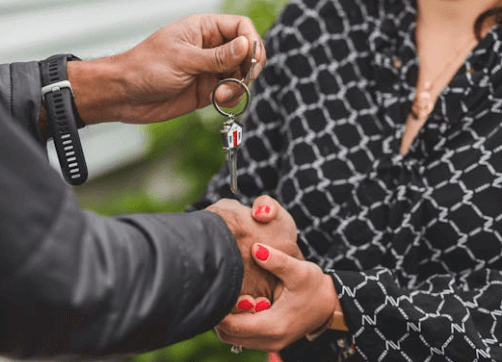Navigating the housing market as first-time home buyers in Florida can be exciting and daunting. With its sunny skies, vibrant cities, and picturesque beaches, the Sunshine State offers a unique blend of attractions for newcomers. However, understanding the ins and outs of purchasing your first home here requires a bit of guidance. This blog aims to arm first-time home buyers in Florida with 22 essential tips to pave the way for a smooth and successful home-buying experience. From securing financing to closing the deal, we’ve got you covered.
Steve Daria and Joleigh, seasoned real estate investors, highlight the significance of grasping Florida’s prevailing market trends before buying decisions. They recommend that first-time home buyers in Florida consider the area’s long-term growth potential, not just the immediate amenities. Their successful investments are a testament to the value of thorough research and patience in the real estate market.
Key Points
- Understanding the Local Market: Before purchasing a home in Florida, it’s essential for first-time buyers to research the local real estate market. This includes knowing the average home prices, neighborhood trends, and demand, which can influence your buying decision and negotiation strategy.
- Securing Financing: Getting a mortgage pre-approval is crucial in buying a home. It helps you know your budget and makes you a more attractive buyer in Florida’s competitive housing market.
- Considering Insurance Needs: Florida’s unique climate means first-time home buyers need to consider additional insurance, such as flood or hurricane coverage. It’s important to factor these costs into your budget to ensure comprehensive protection for your new home.
- Evaluating Property Conditions: Thorough property inspections are vital to spot potential issues or repairs. This can save you from unexpected costs and help you negotiate better terms with the seller.
- Planning for Future Growth: When buying a home, consider the area’s potential for development and appreciation. Look into upcoming infrastructure projects and community plans to ensure your investment aligns with long-term goals.
Research and Preparation
Before you set foot in your potential new home, a solid foundation of research and preparation is crucial. Here are several tips to get you started:
1. Understand Florida’s Real Estate Market
Florida’s real estate market is known for its volatility. It’s affected by unique factors, such as tourism, hurricanes, and a constantly shifting population.
Understand housing trends, local markets, and areas showing growth or decline.
For example, urban centers are typically more expensive, while suburban areas and cities with emerging job markets could offer more affordable options.

2. Know Your Budget (and Stick to It)
For first-time home buyers in Florida, be clear on what you can afford. Use affordability calculators to determine your comfortable payment range.
Remember, your mortgage isn’t the only cost—factor in property taxes, homeowner’s insurance, and possibly homeowner’s association (HOA) fees.
A good rule of thumb is that your monthly housing expenses should be at most 30% of your gross monthly income.
3. Check Your Credit Standing
An excellent credit score could save you thousands over the life of your loan. You should review your credit report for errors and take steps to address any outstanding debts or collections.
This sentence can help you consistently have a good credit score and avoid any adverse impact on your financial standing.
When applying for a mortgage in Florida, a greater credit score may result in a lower down payment requirement, making homeownership more achievable.
4. Secure Financing Early
Getting pre-approved for a mortgage before you start house hunting can make your offer more competitive and speed up the closing process. Compare lenders, mortgage types, and rates.
The usual types of mortgages are conventional loans, which are not insured by the government, and FHA loans, may offer low down payments and are backed by the Federal Housing Administration.
Finding the Right Realtor
Working with a seasoned professional can make the search and transaction smoother for first-time home buyers in Florida. Here is how to find the right one:
5. Ask for Recommendations
For first-time home buyers in Florida, you can contact your friends, family, and other people you know who have recently purchased homes.
Seeking personal referrals can lead you to a real estate agent whose expertise and demeanor align with your requirements.
6. Interview Multiple Agents
Don’t just settle for the first agent you come across. Interview at least three to gauge their experience, area knowledge, availability, and approach to the home-buying process.
7. Look for Local Expertise
Florida is a large state with diverse regions, each with its local regulations and characteristics.
An agent who specializes in your area of interest can provide invaluable insight.
8. Check for Credentials and Reviews
Ensure the state and a National Association of Realtors member license your agent. Check online reviews and track records for clues about their reputation and success with first-time home buyers in Florida.
Exploring the Market
Now, it’s time to venture out and view potential homes. Here’s how to make the most of your home-buying experience:
9. Make a Must-Have and Nice-to-Have List
Understand what features are non-negotiable for your home (number of bedrooms, proximity to schools or work, etc.) and what are desire-driven.
Florida offers a range of housing types and styles, but only you can determine the best fit for your lifestyle and needs.
10. Attend Open Houses and Viewings
Take notes and photos if allowed, but also pay attention to how you feel in the space. Does it feel like it could be home?
Visualize your life there and consider its proximity to amenities and neighborhood vibe.
11. Research Neighborhood Safety and Quality of Life
Use online tools and visit the neighborhoods you’re considering at different times of day.
Speak to potential neighbors and inquire about safety, schools, traffic, and community activities.
Your Realtor’s local expertise will give you deeper insights into potential fit areas for you as a homeowner in Florida.
12. Be Ready to Move Quickly
Desirable homes can move fast in a hot market. Be prepared to make an offer when you find the right property.
Work with your Realtor to have all your paperwork in order and a strategy for your offer, including contingencies and closing timelines.
Making an Offer and Closing the Deal
When you find “the one,” these tips can help you seal the deal:
13. Submit a Strong Offer
Your offer should be competitive based on comparable home prices in the area.
Your Realtor can help you craft a firm offer with the right price, contingencies, and terms designed to appeal to the seller.
14. Negotiate Wisely
Negotiating on the price is common, especially in Florida’s buyer-friendly market.
Be prepared for counteroffers and decide what concessions you will make to close the deal.
15. Get a Home Inspection
A professional home inspection can uncover any hidden issues with the property.
Common concerns in Florida homes include mold, termites, and roof conditions.
Addressing these during the negotiation phase can save you from costly surprises.

16. Finalize Your Financing
Once your offer is accepted, work with your lender to finalize your mortgage.
Please provide any additional documentation they request and conduct necessary appraisals or surveys.
17. Conduct a Final Walk-Through
Before closing, you’ll have the chance to walk through the property one last time. Use this opportunity to ensure the home is in the expected condition and that any repairs or agreed-upon work is completed.
18. Close with Confidence
At the closing, you’ll sign a mountain of paperwork and receive the keys to your new home.
Be prepared to pay your closing costs, more or less than 5 percent of the purchase price.
But what are the average closing costs in Florida? The average costs for a home usually range from 2% to 5% of the purchase price.
These costs can include fees like loan origination, appraisal, title insurance, and survey fees.
Your Realtor and the closing agent will guide you through the process, and soon, you’ll be the proud owner of a Florida home.
Post-Purchase Considerations
Your homeownership adventure doesn’t end at the closing table. Here are some final tips to help you transition to life as a Florida homeowner:
19. File for Homestead Exemption
Once you move into your new Florida home, you may be eligible for a homestead exemption, which can reduce your property taxes.
Check with your local county’s property appraiser’s office for details on how to apply.
20. Get to Know Your Insurance Needs
Homeowner’s insurance is a must in Florida, with specific considerations for hurricane and flood coverage.
Work with local insurance providers to ensure you have the right policies to protect your investment and belongings.
21. Join the Community
Participate in local organizations and events to benefit your new Florida community.
This will help you settle in and provide an excellent opportunity to meet new people and experience all your community offers.
22. Maintain Your Property
Homeownership comes with ongoing maintenance and repairs. Make regular improvements to keep your home in good condition and maintain its value.
This may include regular pest control, hurricane preparedness, and weather-related maintenance in Florida.

